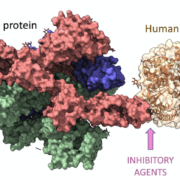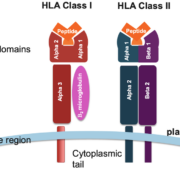Diving into the History of HLA Genes and Their Impact on Drug Discovery
The Human Leukocyte Antigen (HLA) system, a key component of our immune system, is responsible for the recognition and presentation of foreign antigens to T-cells. The HLA system has emerged as a vital player in transplant compatibility, autoimmune diseases, and pharmaceutical drug discovery. In this blog post, we will explore the fascinating history of HLA genes, discuss HLA typing, and examine their significance in the ever-evolving world of drug discovery.
The History of HLA Genes
- The First Discovery: The origin of HLA gene discovery dates back to the 1950s, when Dr. Jean Dausset identified the inaugural human leukocyte antigen. His ground-breaking work stemmed from studies on blood transfusions, which led to the realization that leukocytes, or white blood cells, were primarily responsible for organ transplant rejection. This crucial finding laid the foundation for further research into the HLA system.
- The Major Histocompatibility Complex (MHC): Throughout the 1960s, scientists worked diligently to unveil more HLA genes. In 1967, Dr. Baruj Benacerraf demonstrated that immune responses were controlled by a set of genes termed the major histocompatibility complex (MHC). The MHC spans a large region on the short arm of chromosome 6 and houses the HLA genes, which encode cell-surface proteins that modulate immune response.
- HLA Class I and II Molecules: As research continued, it became evident that HLA molecules were divided into two primary classes: Class I and Class II. HLA Class I molecules are present on nearly all nucleated cells and are involved in presenting endogenous antigens to cytotoxic T-cells. In contrast, HLA Class II molecules are mainly expressed on antigen-presenting cells (APCs) and present exogenous antigens to helper T-cells.
- Nobel Prize Recognition: The importance of the HLA system and MHC’s role in immune response was acknowledged with the awarding of the Nobel Prize in Physiology or Medicine in 1980. The prestigious accolade was bestowed upon Drs. Jean Dausset, George Snell, and Baruj Benacerraf for their pioneering work in understanding the genetic basis of the immune response.
HLA Typing
HLA typing is a method employed to determine donor and recipient tissue compatibility for organ transplantation. The technique involves identifying specific HLA alleles, or gene variants, within individuals. HLA typing can be performed using various methods, including serological typing, DNA sequencing, and molecular methods like polymerase chain reaction (PCR). The development of these techniques has substantially improved organ transplantation success rates by reducing the likelihood of graft rejection.
HLA Genes and Pharmaceutical Drug Discovery
The link between HLA genes and drug discovery began to surface as researchers recognized the system’s role in immune response and disease susceptibility. The following are some key areas where HLA genes have significantly influenced pharmaceutical drug discovery:
- Personalized Medicine: Advances in genomics and HLA typing have enabled researchers to customize medical treatment based on an individual’s genetic makeup. By determining a patient’s HLA genotype, physicians can predict drug response, efficacy, and potential adverse reactions, leading to personalized medicine and improved patient care.
- Drug-induced Adverse Reactions: Some HLA alleles are associated with an increased risk of adverse drug reactions. Identifying these associations allows pharmaceutical companies to design safer drugs and develop predictive tests to minimize adverse effects in susceptible individuals.
- Autoimmune Diseases: HLA genes have been implicated in numerous autoimmune diseases, including rheumatoid arthritis, celiac disease, and type 1 diabetes. By understanding HLA genes’ role in these conditions, researchers can develop targeted therapies to modulate the immune system and prevent or treat autoimmune disorders.
- Cancer Immunotherapy: Cancer cells often display altered HLA molecules, allowing them to evade immune surveillance. By leveraging our understanding of HLA genes, researchers are developing novel cancer immunotherapies, such as checkpoint inhibitors and CAR-T cell therapies, to enhance the immune system’s ability to recognize and eliminate cancer cells.
Conclusion
The fascinating history of HLA genes, from their initial discovery to the Nobel Prize-winning recognition, has paved the way for tremendous advancements in transplant compatibility, personalized medicine, and drug discovery. The continued exploration of the HLA system and its intricate workings promises to bring about even more significant advancements in drug development and medical treatment, ultimately benefiting patients worldwide.







 The Sequencing Center
The Sequencing Center

Leave a Reply
Want to join the discussion?Feel free to contribute!